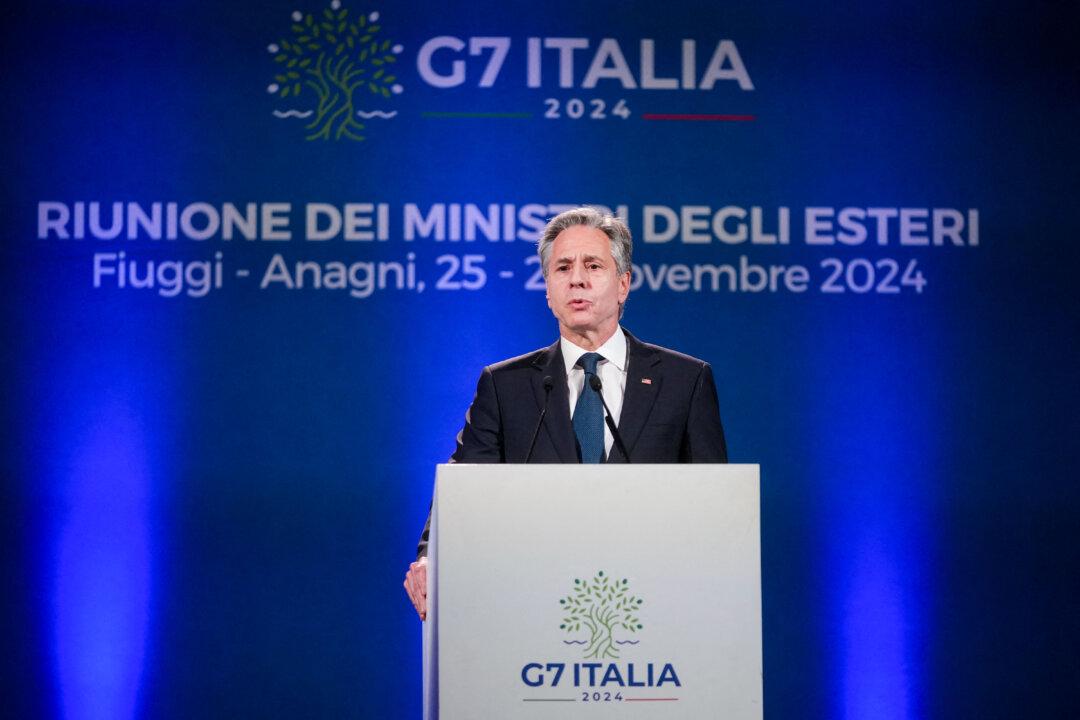The Group of Seven (G7) countries are “increasingly aligned” in their efforts to confront economic and security risks posed by communist China, Secretary of State Antony Blinken said on Nov. 26, after the group’s foreign ministers ended their two-day meeting in Italy.
“The bottom line is this: We are much stronger, we’re much more effective, when we’re acting together, not alone,” Blinken said at a press conference in Fiuggi, Italy. “And just to cite the obvious example in the economic area when we’re dealing with policies of concern by China, any of our countries acting alone compared to when we’re acting together simply cannot be as effective.”





